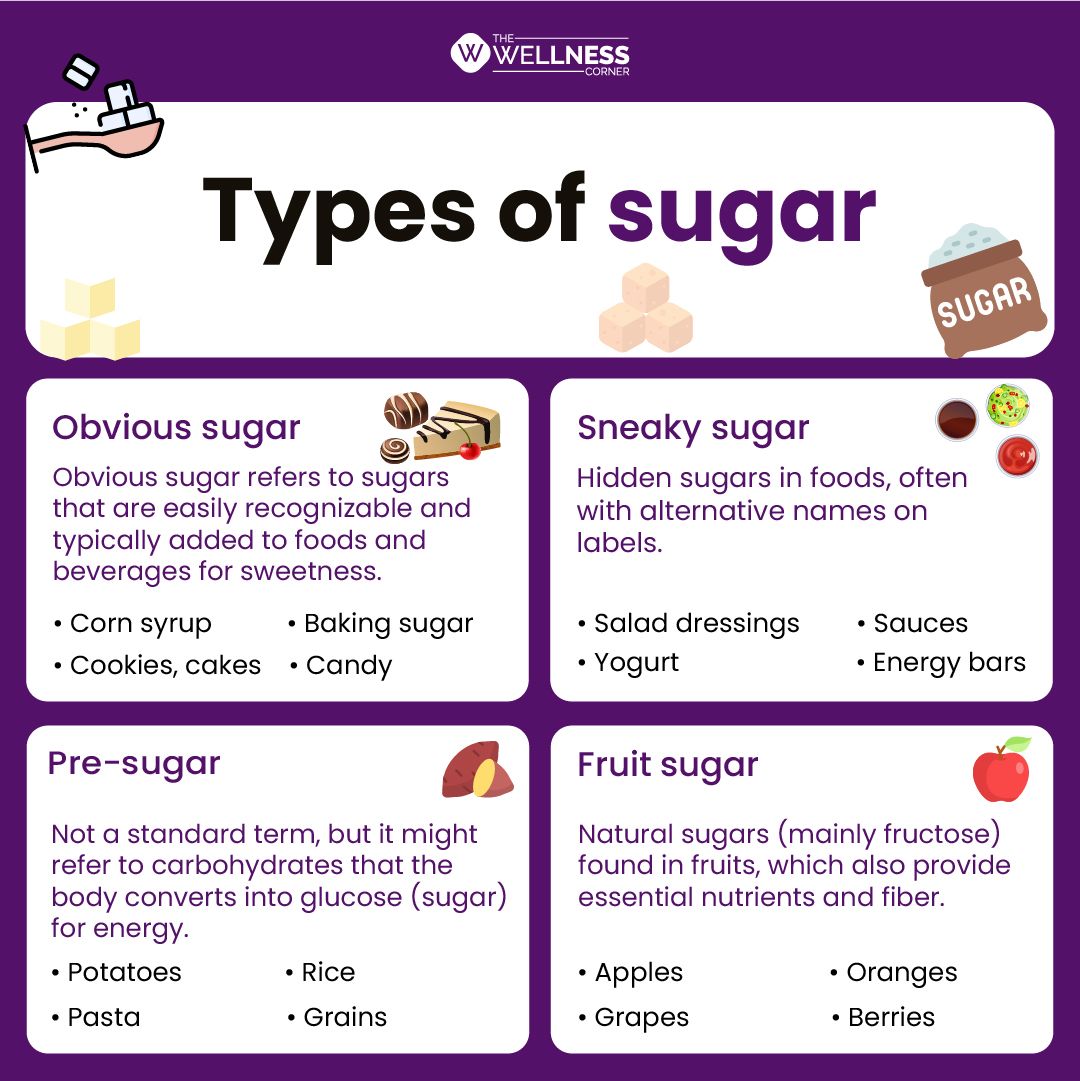Can Sugar In Fruits Cause Weight Gain?
26 months ago
4 minute read.

We all love fruits - they're tasty and good for us, right? But there's a question that often pops up: can the sugar in fruits make us gain weight? It's a valid concern because fruits do have sugar, especially when you want to keep your weight in check.
Strawberry – a burst of natural sweetness that instantly lifts your spirits. Fruits like strawberries have been a part of our diets for centuries, celebrated for their delightful flavors and rich nutrients. But lately, there's been chatter about whether the sugar in fruits might contribute to weight gain.
When we talk about sugar, we usually think of the white granules we add to our coffee. But the sugar in fruits is different – it's natural and comes with a bunch of goodies. Think of it like a healthy package deal.
Also read: Are you eating fruits the right way?
Understanding sugar
What we commonly call sugar is categorized into three types - sucrose, glucose, and fructose.
- Sucrose: Sucrose, found in table sugar, is broken down in your digestive system into glucose and fructose. Both glucose and fructose are absorbed into the bloodstream, leading to a rise in blood sugar levels and insulin release.
- Glucose: Glucose, often referred to as blood sugar, is a primary energy source for your body. It is quickly absorbed into the bloodstream, causing an increase in blood sugar levels and insulin release to manage those levels.
- Fructose: Fructose, naturally found in fruits and vegetables, is metabolized differently. It is primarily processed in the liver and doesn't cause a significant insulin spike. Fructose metabolism also stimulates the production of leptin, a hormone that helps control appetite. However, excessive fructose intake, often from processed foods, can lead to liver issues like non-alcoholic fatty liver disease (NAFLD).
Also read: Is it a good idea to cut down on sugar completely? Here's what experts have to say

Can whole fruit consumption lead to weight gain?
Fruits are naturally sweet because they contain a type of sugar called fructose. Fructose, when consumed in excess, can contribute to weight gain. However, it's crucial to distinguish between the natural sugars found in whole fruits and added sugars, such as those in sugary drinks and processed foods.
Whole fruits come bundled with essential nutrients like vitamins, minerals, fiber, and antioxidants. This fiber content helps slow down the absorption of sugar, preventing blood sugar spikes and excessive insulin production. Additionally, the nutrients in fruits support overall health and can be part of a balanced diet.
The key to enjoying fruits without weight gain is moderation. Incorporating a variety of fruits into your diet can provide essential nutrients while keeping sugar intake in check.
Also check: Best nutritious fruits you should have in breakfast
How to manage sugar in a weight loss diet?
If you're concerned about sugar in fruits while trying to lose weight, consider the following tips:
- Balance your diet: Include a variety of fruits in your diet to ensure you get a wide range of nutrients without overloading with the sugar from a single fruit.
- Monitor serving sizes: Be mindful of portion sizes. While fruits are healthy, eating large quantities can still contribute to calorie intake.
- Timing matters: Consume fruits earlier in the day when your body is more active and can utilize the energy.
- Pair with protein or healthy fats: Combining fruits with protein or healthy fats can help stabilize blood sugar levels and keep you feeling full. For example, enjoy an apple with a small serving of almond butter.
How to choose the best fruits as per your body?
Choosing the best fruits for your body involves considering your individual dietary needs, preferences, and any specific health goals or restrictions you may have. Here are some steps to help you make the right fruit choices:
Assess your nutritional needs
Before selecting fruits, evaluate your nutritional requirements. Are you trying to increase your intake of specific vitamins or minerals? Are you managing a health condition like diabetes or high blood pressure? Understanding your nutritional goals will guide your fruit choices.
Know your dietary restrictions
Consider any dietary restrictions or allergies you have. For example, if you're lactose intolerant or follow a vegan diet, you might opt for fruits that are rich in calcium, like oranges or figs, to meet your calcium needs.
Consider glycemic impact
If you're concerned about blood sugar levels or managing diabetes, you may want to choose fruits with a lower glycemic index (GI). Lower GI fruits, such as berries, cherries, and apples, have a milder impact on blood sugar compared to high-GI fruits like watermelon or pineapple.
Fiber content
Fruits that are high in fiber can help with digestive health, promote satiety, and regulate blood sugar. Fiber-rich fruits include pears, raspberries, and prunes. Incorporate these if you're looking to increase your fiber intake.
Weight management
If you're trying to manage your weight, focus on fruits that are lower in calories and have a higher water content. Options like watermelon, cucumber, and cantaloupe are hydrating and relatively low in calories.
Variety is key
Don't limit yourself to a few fruits; aim for variety. Different fruits offer distinct nutritional benefits, so incorporating a diverse range ensures you get a wide spectrum of vitamins, minerals, and antioxidants.
Conclusion
Incorporating whole fruits into your diet is generally a healthy choice, and the sugar in fruits is not likely to be a significant contributor to weight gain when consumed in moderation. Focus on balanced eating, portion control, and choosing fruits that align with your dietary goals and preferences. Remember, maintaining a healthy weight is about overall diet and lifestyle, not just individual foods. Consult with a healthcare professional or registered dietitian for personalized guidance on achieving your specific health and weight management goals.
Leave a Comment
Related Articles
Health Checks @ Home
Service
Explore
© 2025 Truworth Health Technologies Pvt. Ltd.





